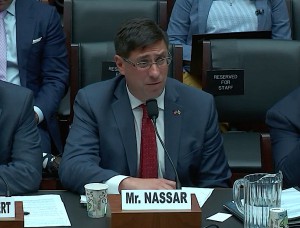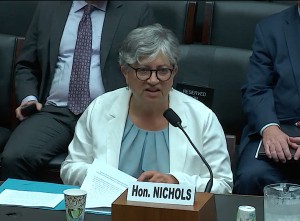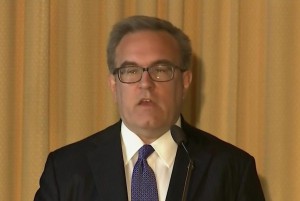
UAW Legislative Director Josh Nassar expressed the union's concerns about the Trump administration's emissions plans during a House subcommittee hearing.
A Congressional subcommittee heard testimony this week that the Trump administration proposed changes to the existing emissions and fuel economy requirements would reduce employment in the auto industry and open the car business to junk science.
Josh Nassar, the United Auto Workers legislative director, said the UAW “shares the concerns expressed by auto manufacturers” that the administration’s proposal could lead to protracted litigation and uncertainty that will limit industry growth.
“We fear the (administration’s proposal) would stifle innovations and discourage investment in the industry while insufficiently combating climate change. We are very concerned that the final rule will be a setback for U.S. workers, the economy and environment,” said Nassar, adding the union was urging the California Air Resources Board, manufacturers and other stakeholders to develop balanced regulations.
Another witness, Mary Nichols, the chairman of CARB, which is opposed to the changes proposed by the Trump administration, said the automakers are complying with the existing standards.
(Good news for battery cars: renewables top coal as nation’s top energy source. Click Here for more.)

CARB's Mary Nichols disputed the Trump administration's assertion the agency was unwilling to negotiate with federal officials.
“The technologies necessary to meet the standards exist today and are cost-effective,” Nichols said.
“The standards in effect today put us on track to clean the air, protect public health, and address climate change. These standards work. The global auto market is moving in exactly the opposite direction from the proposal,” she said.
Nichols said California has always been at the forefront of efforts to protect the public from smog and climate change. She also took the time to move off her prepared remarks to rebut allegations from the administration that CARB was unwilling to negotiate with federal agencies on a shared policy. “We have always been willing … we still are,” she said at the end of her opening remarks.
(Click Here for more about the Trump administration taking credit for fuel economy, emissions gains.)
Disempowering the states and U.S. EPA experts, the Trump administration would instead have the nation’s automotive future determined according to junk science, illogical assumptions and outdated technologies, critics of the administration’s proposal have charged.

EPA Administrator Andrew Wheeler argues that the CAFE changes are getting cleaner, safer cars onto the road faster than under the Obama rules.
The administration’s proposal is unacceptable, illegal, and has been repudiated by leading experts in a peer-reviewed study in science, Nichols noted in her written testimony. It is based on vastly inflated estimates of compliance costs inconsistent with the technical record and rejected by both U.S. EPA and NHTSA staff just a few years ago, she added.
Nichols said the rollback goes forward, gas costs will increase – by about $2500 during the life of a car – and fuel use will increase by billions of gallons, jobs will be lost, as even the Trump proposal anticipates, and public health will be endangered.
(Honda leads the pack in fuel economy average. Click Here for the story.)
The administration suggests by easing the burdens, it will make newer vehicles less expensive. Cheaper vehicles would entice the drivers of older and less efficient cars, trucks and utility vehicles to swap for cleaner and less expensive new ones. The average age of a vehicle in the U.S. is nearly 12 years old.
